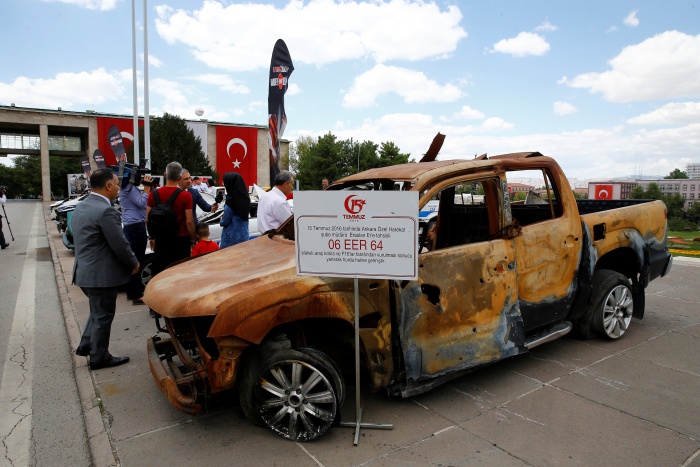With today marking the second-year anniversary of a coup attempt in Turkey on July 15, 2016, the judiciary has so far heard 289 trials directly related to the coup and has handed down 2,381 jail sentences of varying lengths, the state-run Anadolu news agency reported on Friday.
The courts have reached verdicts in 194 cases, while 95 trials are still ongoing. Among the defendants, 734 were handed down aggravated life sentences and 890 were convicted to life. Seven hundred fifty-seven were given prison sentences ranging from one year, two months to 20 years.
Turkish authorities believe the Gülen movement orchestrated the coup attempt. Although the movement strongly denies it, the Justice and Development Party (AKP) government has been conducting a crackdown on them since it took place.
The movement has been designated a “terrorist organization” in Turkey, and thousands people have been jailed by the courts so far on charges of being a follower of the movement. According to the Justice Ministry, more than 200,000 people have been investigated for Gülen links.
Some 160,000 civil servants were dismissed from their jobs in the aftermath of the coup attempt, while thousands of Turkish nationals applied for asylum in other countries.
Immediately after the putsch, the Turkish Parliament declared a state of emergency that is due to end on July 19 after almost two years in force. Under the state of emergency Turkish law enforcement enjoyed enhanced authorities in dealing with “terror suspects,” including impunity in instances of ill treatment and even torture.
Dozens of cases of ill treatment and torture as well as abduction have been documented by international organizations such as Human Rights Watch and Amnesty International.
Turkey held a referendum introducing an executive presidency last year and presidential and parliamentary elections on June 24. President Recep Tayyip Erdoğan emerged victorious in both.
While the bombardment of the Turkish Parliament on the night of the coup has been referred to extensively by politicians, Parliament’s influence on the government was significantly diminished by the referendum.
Under the state of emergency more than 30 government decrees were issued by the cabinet that ordered the closure of almost 200 media outlets, over 3,000 educational institutions and hundreds of associations. Some criticized the decrees as a tool for the government to exceed its powers instead of focusing on critical issues.
Turkey has also become the biggest jailer of journalists in the world since the coup attempt, imprisoning more than 300 media workers, most of whom were employed by Gülen-linked outlets.



